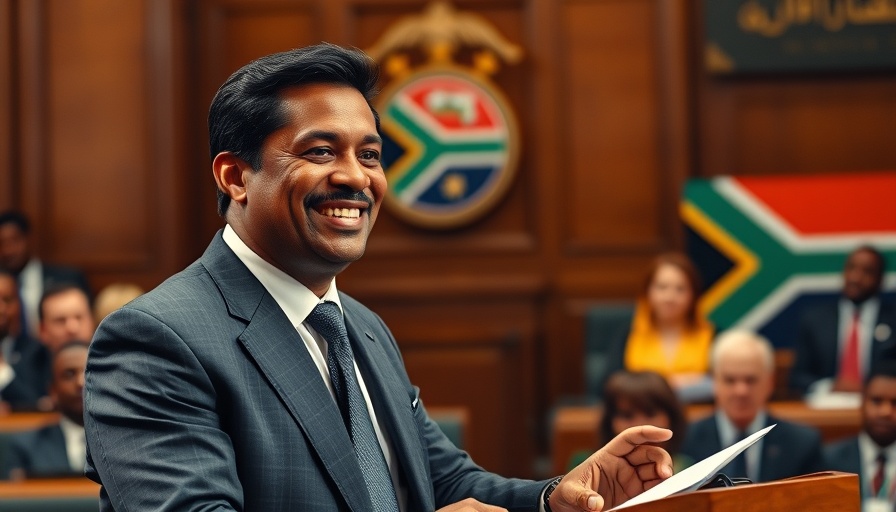
Traditional Leaders: Cornerstones of Electoral Democracy
In the ongoing discourse surrounding electoral democracy in South Africa, the role of traditional leaders has emerged as a pivotal factor. Judge Mjabuliseni Madondo, a candidate for the vacant positions in the Electoral Commission (IEC), recently articulated that traditional leaders are essential in instilling confidence among constituents about electoral processes. This assertion, presented during his interview before a panel led by Chief Justice Mandisa Maya, resonates with historical insights regarding the functions of traditional structures in South African society.
Understanding the Role of Traditional Leaders
Traditional leaders wield significant influence, especially in rural areas, fulfilling roles that intertwine governance with cultural significance. Madondo emphasized the importance of these leaders in facilitating communication between the government and the communities they represent. By engaging these leaders during information sessions or imbizos (traditional gatherings), he argues, the government can address citizens' questions directly, thereby enhancing trust in government processes. This approach also addresses the legitimacy of electoral participation, which is critical in the face of challenges such as declining voter turnout.
Linking Traditional Leadership and Modern Governance
In the context of South Africa's democratic progression since 1994, the alignment of traditional authority with democratic governance remains contested. The African National Congress (ANC), led by President Cyril Ramaphosa, has positioned itself as a proponent of modern electoral practices, yet, this often masks the historical partnership that traditional leaders and political figures have shared. Their integration into political discourse can significantly affect political realignment, especially as coalitions are increasingly becoming the order of the day. For instance, Madondo's perspectives can complement existing governmental structures as the ANC navigates potential coalitions with other parties, such as the Democratic Alliance (DA) and the Economic Freedom Fighters (EFF).
The Implications for Upcoming Elections
With the 2024 general elections drawing closer, discussions around electoral integrity, reform, and inclusivity are paramount. The hybrid governance model that includes traditional leaders might become instrumental in mobilizing voter bases, particularly among marginalized groups that have historically been disenfranchised. It is through such strategies that the IEC can bolster voter turnout, critical for the legitimacy of the electoral process. The role of traditional leaders, therefore, is not merely symbolic; it is anchored in tangible actions that help counteract issues like political apathy and disillusionment among voters.
Challenges Facing Traditional Leaders
Despite their potential impact, traditional leaders often confront numerous challenges that can dilute their effectiveness. Issues such as land reform, service delivery, and rising crime rates can undermine their authority within communities. Furthermore, the perception of state capture and corruption within political ranks may lead traditional authorities to be viewed with skepticism. Therefore, for leaders like Madondo, working alongside traditional figures can shed light on pressing issues and provide a grassroots acceptance required for the successful implementation of policies affecting rural populations.
Moving Forward: Collaboration and Reform
The future of South African electoral democracy hinges on the collaboration between traditional leaders and the formal political system. This partnership could hold keys to effective reforms that encompass public sector reform and safeguarding human rights, enhancing transparency, and fostering electoral integrity. As South Africa prepares for both the 2024 general elections and the 2026 municipal elections, traditional leaders must be at the forefront of discussions regarding political reform and participatory governance.
In conclusion, the emergence of traditional leaders as indispensable figures in electoral democracy symbolizes a growing recognition of the importance of inclusivity and trust in governance. With the looming elections, South Africa stands at a crucial juncture where the harmonious blend of traditional and modern governance models could set the foundation for ongoing democratic stability and growth.
Thus, stakeholders across the political spectrum and civil society must recognize the value these leaders bring to the table and work collaboratively towards contracts that will ensure a better democratic future for all South Africans.
As we anticipate significant electoral shifts and reforms, it is paramount to engage actively with traditional leadership as a method of enriching our democratic processes. Ensuring that traditional leaders participate meaningfully will not only enhance electoral legitimacy but pave the way for a robust, representative governance structure moving forward.
 Add Row
Add Row  Add
Add 




Write A Comment